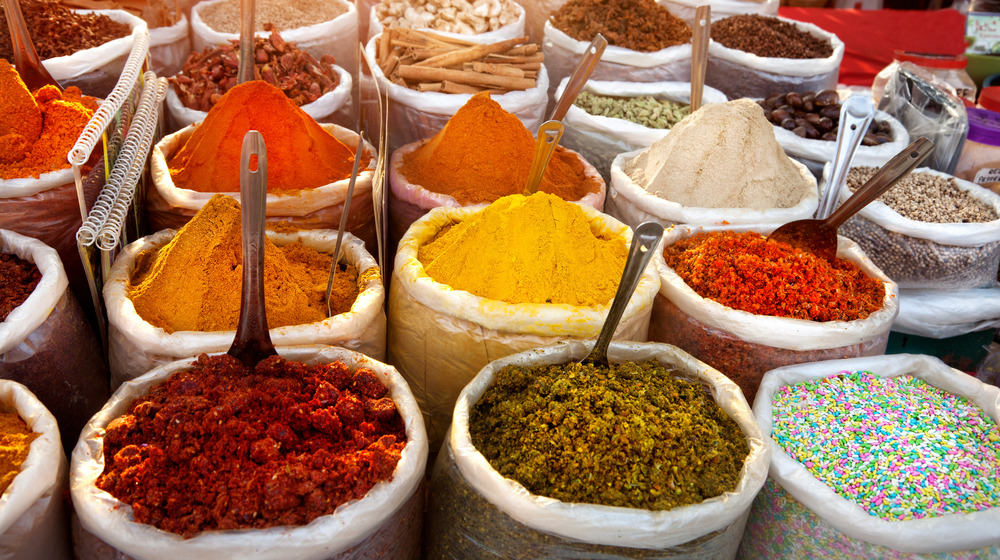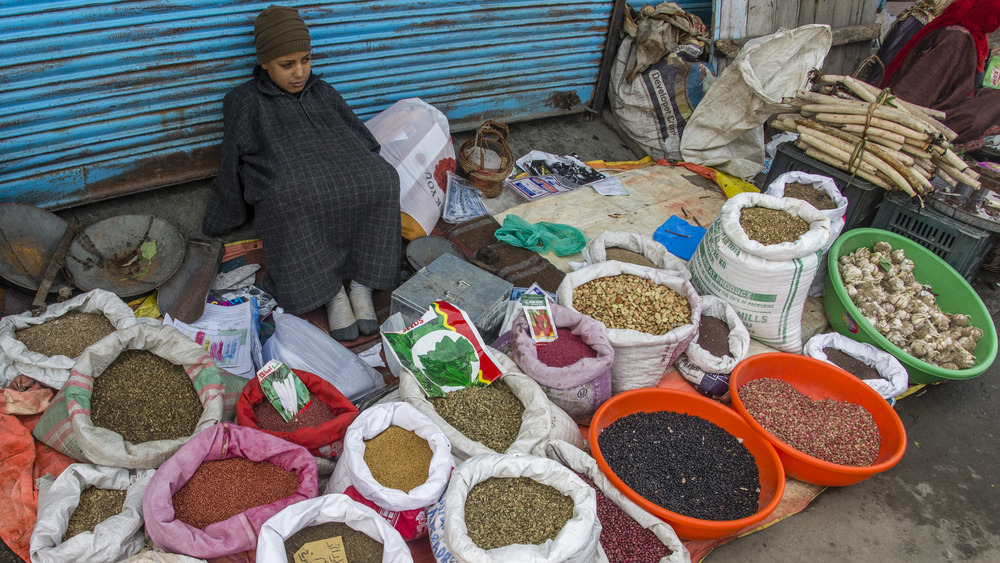What Are Single-Origin Spices And Why Should You Use Them?
It might feel like there are plenty of single-origin items out on the market today. There are single-origin coffee beans, and single-origin teas, as well as single-origin chocolate bars. And before you dismiss the phrase "single-origin" as "another way to get more money out of the consumer," hear us out.
It may be true that "single-origin" has become something of a marketing catch-phrase, but for companies that are true to their word, it also means that products like coffee beans, cacao beans, teas, and spices, are sourced from just one production area. In the case of some spices, it might even come from just one farm, or one cooperative (via Burlap and Barrel). Ethan Frisch, who started Burlap and Barrel, tells Epicurious that there is a problem with the spice trade. "The commodity spice supply chain is completely opaque, and intentionally so. There are people who benefit from a consumer's lack of understanding. Likewise, [there are people] who benefit from the farmers' lack of understanding about where the spices are going," he says.
Our commercial spices go through several layers of a global supply chain
Frisch, who used to be a chef, breaks down the spice route for Epicurious, as one that begins from the plot a single spice farmer, through the hands of several middlemen who buy and consolidate the spices into bigger shipments. What is now a spice bulk is then sold to a big company which then breaks down the spices into smaller quantities so they can be sold to consumers. That whole process not only takes time, wherein the spices lose their flavor, it also means that higher grade spices can be mixed in with cheaper, lower-grade lots (via Burlap and Barrel). The spices that eventually come to sit in our cupboards and pantries today are nothing more than a pale shadow of what they should be.
As with the case of switching to single-origin coffees, teas, and chocolate, making the change to single-origin spices means buying straight from the source so farmers are paid what they are meant to earn for the fruits of their labor, and our dishes benefit from getting our hands on spices more quickly. Single spice traders like Sana Javeri Kadri of Diaspora Co. agree. "It's heartening that customers are able to taste the difference and are starting to ask for it," she tells Epicurious.

